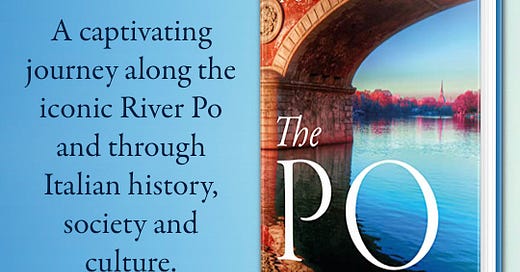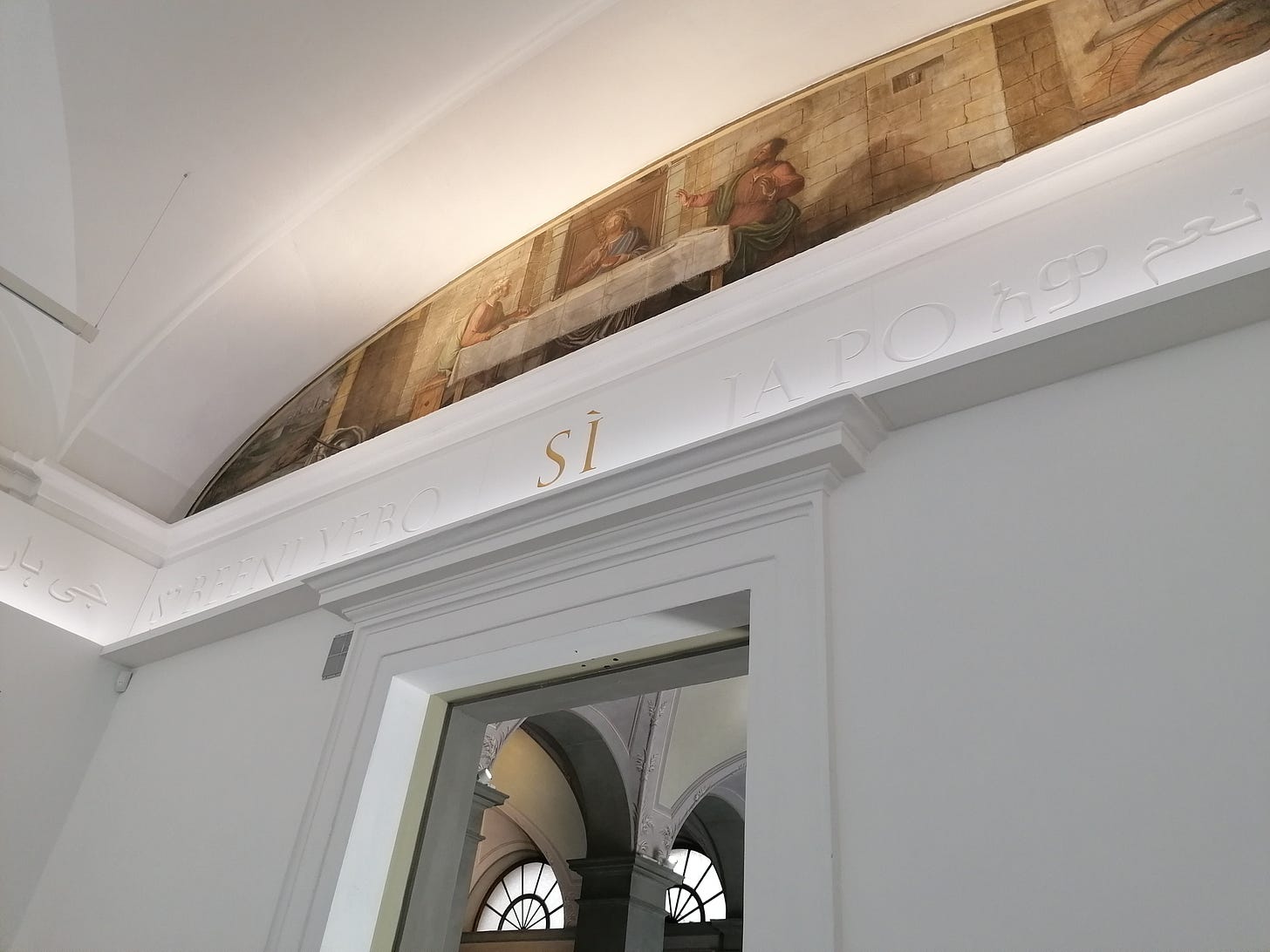Another summer, another #crisidigoverno
Plus, new work by Tobias Jones and a museum of the Italian language
A political storm has been brewing for some time in Italy, but the eye, it seems, has finally arrived. Earlier this week the Five Star Movement, the largest of the ruling parties, announced they will no longer work with Mario Draghi’s administration for two key reasons: firstly, because they oppose sending weapons to Ukraine and secondly, because they’ve deemed a new package of reforms, designed to protect people from rising costs of living, to be insufficient. This morning, after efforts to find a compromise, Draghi announced that the only path to a solution would be a ‘voto di fiducia’; a vote of confidence regarding the reform measures and, by extension, the administration itself. During the ballot, which took place just a few hours ago, the M5S abstained which effectively means that the PM will resign and that early elections are on the cards, most likely in the autumn. There are many questions as to why the M5S is acting so aggressively at this precise instance: to save face after the humiliation of last month’s internal revolt? To win favour with Giorgia Meloni and the opposition Fratelli d’Italia ahead of a future ballot? Or simply to give some illusion of meaning to a movement that, for many years, has lost its anti-establishment appeal? Whatever the case, at this moment, faced with war, inflation, pandemic and an energy crisis, the electorate is unlikely to look favourably upon what many will rightly perceive as an all-too-familiar act of sectarian posturing. More on this next week, though, when the ash starts to settle.
A huge congratulations to Tobias Jones whose latest book, The Po, was released last week. I’ve flagged this title before in the newsletter, firstly because environmental nature writing and place-based history is close to my heart, but also because Jones is, and has long been, one of my favourite commentators on Italy. The Guardian published a long essay on “the life and slow death of Italy’s longest river” to coincide with the release, which I’d really recommend reading for an overview of the current drought/heatwave and the larger ecological catastrophe that is unfolding in the north of the country. Otherwise, check out this review in The Spectator which gives a good flavour the contents. Speaking for myself, I’ve been waiting for this book for a long time, and it’s top of my summer reading pile. So if this is your kind of thing make sure to order a copy from the publisher, Head of Zeus.

A little more Jones-boosting is in order this week I think, for the quite simple reason that, in addition to the book, he’s also published two distinctive and fascinating essays on other aspects of Italian cultural life that are absolutely worth your time. The first, for Unherd, looks at the corrupt world of Italy’s beach economics, focusing in particular on the rapid acceleration of privatisation. Some of the statistics are frankly terrifying. Apparently, as things stand, over 50% of the Italian coast is now owned by private companies and the rate is only increasing. In 2018-21 alone Sicily, Campania and Basilicata saw a 41.5%, 22.8% and 15% rise in sales of coastal land and this is just the tip of the problem. Read on for a thorough inquiry into Italy’s “deck chair renting racket” and the odd things it reveals about traditionalism, Euroscepticism and the unique beast that is Italian capitalism. To lighten the mood, I’d also suggest tucking into Jones’s other piece: a short essay for Engelsberg Ideas about the past, present and future of pallone, i.e. bat-and-ball games dating back to the medieval era. Because “however serious the world situation”, he writes, “humans always seem to want to play.”
Arts and culture: language and heritage
On 7 July a new museum of the Italian language, MUNDI, opened its first two rooms to the public in Florence’s Santissima Concezione monastery (located within the Santa Maria Novella complex). According to The Florentine, the space, which is overseen by the linguist and philologist Luca Serianni, and co-funded by the Comune di Firenze and the Ministry of Culture, will display “manuscripts, books, paintings and objects related to the history of Italian” while also serving as a hub for “educational activities, talks, courses, seminars, book presentations and concerts.” Leaving aside my own nerdy reasons for enjoying this news (the chance, for example, to see Bocaccio’s hand-copied transcript of Dante’s Divine Comedy) I think there’s a real opportunity here for the local administration to create a cultural space that could provide a form of public education to residents of the historic centre which is, all too often, seen as a place for tourists alone. Read the full piece on the Florentine for a little more on the philosophy and prospects for the museum which is due to open – in full – in 2023. I’ll be writing more on this later in the year.
If you’re spending any time at all in Italy this summer it might be worth bookmarking this useful piece by ArtTribune which offers a quick guide to all of the major festivals taking place across the peninsula and islands between July and October. Some of the big hitters, like Remapped Summer at Milan’s Pirelli Hanger Bicocca, and Genova’s Electropark, have already taken place or are underway; but there are still plenty of events to look forward to such as the Pollino festival, the jazz festivals in La Spezia and Monforte d’Alba, the symphonic celebrations in Martina Franca in the Val d’Itria to name just a few. One bonus tiibit vis-à-vis festivals: I was pleased to read the other day that Gianni Morandi has been confirmed as co-host for Sanremo 2023 alongside the usual artistic director ‘Amadeus.’ Fabulous news if you ask me, and an inspired decision by the festival’s organising committee…
Recipe of week: courgette lasagne with lemon béchamel
I’ve always found it bizarre how in July and August, just when the country is at its hottest, Italians seem to insist on crowding around large foil containers on the beach in the midday sun to enjoy a large plate of lasagne. Well, over the years, in spite of myself, the habit seems to have rubbed off on me, and while I wouldn’t go near a bolognese with the temperatures as high as they are right now there is, I admit, something satisfying about the smooth texture of eggy pasta sheets that, yes, does work in the summer. This week, with that small revelation in mind, I decided to rustle up a vegetarian pasta al forno with zucchini and a lemon béchamel for a group of friends. The recipe I followed was adapted from Gennaro Contaldo’s suggestion here and it turned out splendidly. The process was straightforward - if a little time consuming - and the result was a creamy but refreshing dish with classic Amalfitan flavours. I served this with a side dish of roasted red onions, blanched green beans and a balsamic dressing which, I have to say, worked particularly well as an accompaniment.
About Me
My name is Jamie Mackay (@JacMackay) and I’m an author, editor and translator based in Florence. I’ve been writing about Italy for a decade for international media including The Guardian, The Economist, Frieze, and Art Review. I launched ‘The Week in Italy’ to share a more direct and regular overview of the debates and dilemmas, innovations and crises that sometimes pass under the radar of our overcrowded news feeds.
If you enjoyed this newsletter I hope you’ll consider becoming a supporter for EUR 5.00 per month (the price of a weekly catch-up over an espresso). Alternatively, if you’d like to send a one-off something, you can do so via PayPal using this link. No worries if you can’t chip-in or don’t feel like doing so, but please do consider forwarding this to a friend or two. It’s a big help!




